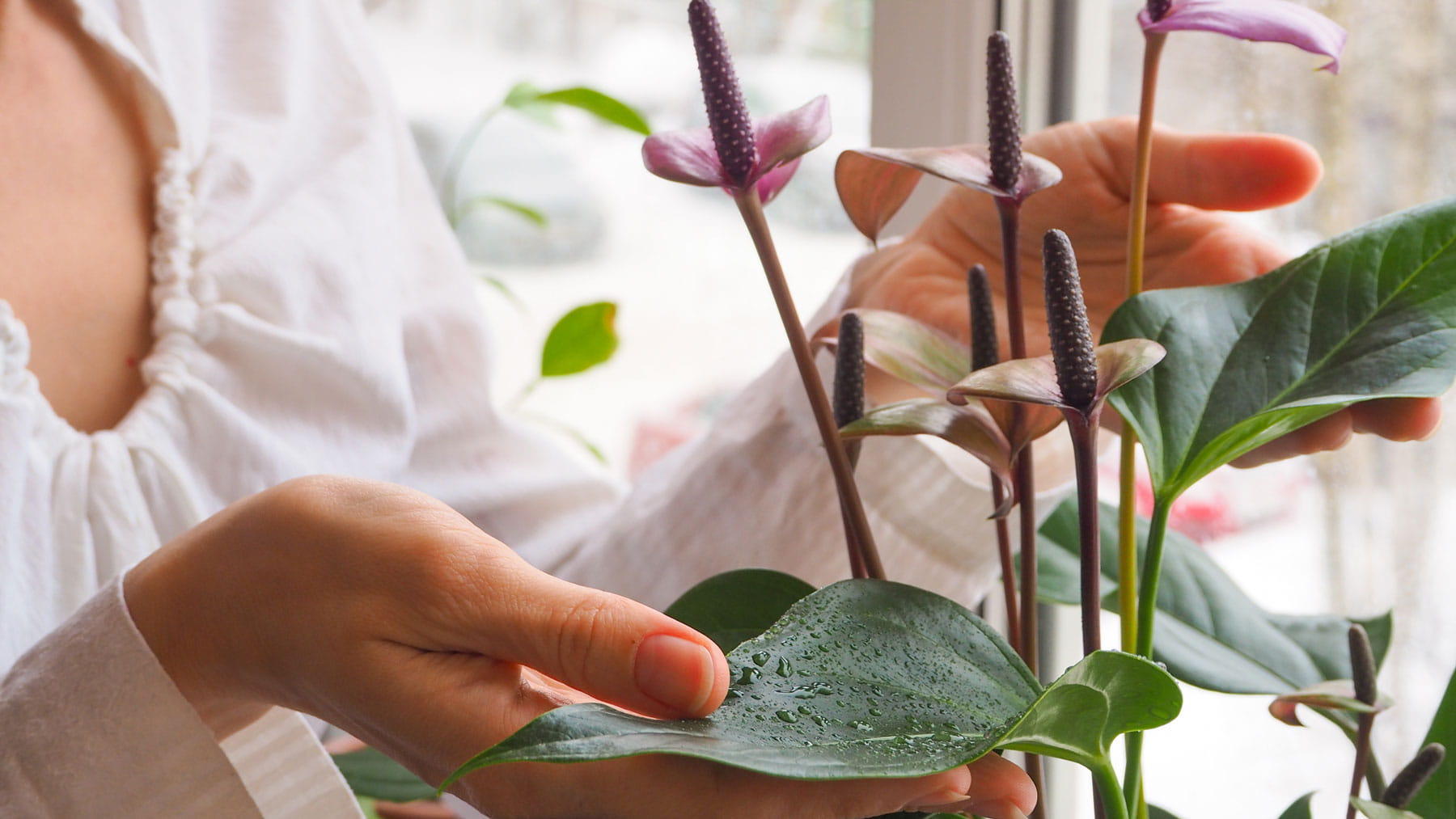Are houseplants good for your mental health?

The next time you see your primary care doctor because your mental health needs a boost, don’t be surprised if you’re prescribed seeds, potting soil and fertilizer.
Take two cacti and call me in the morning? It might sound like an overly simplistic approach to fixing what ails you, but there’s an argument to be made for the healing effects that maintaining a house plant provides.
As a primary care physician, I see family members, young and old, in various stages of life. Oftentimes folks with stress, anxiety and depression require medical therapy or counseling with a psychologist. But I always make a point to discuss non-pharmacological approaches, too, to help with mood symptoms. Nutrition, exercise, medication, yoga and other mindful approaches are important. There's even evidence that growing plants can help.
Back when I was in medical school, I learned the importance of the principle of “first, do no harm.” When it comes to interventions like procedures and medications, the burden of proof for effectiveness is greater. For instance, if a new medicine carries the risk of side effects, there needs to be solid proof that the medicine actually works. When it comes to activities like meditation, exercise and growing plants, it’s hard to see a downside. If there's any reason to think they are helpful and no concern for harm, I ask, “Why not?” Therefore, many patients who are looking for a lift would do well to consider looking after plants for the sense of purpose and the joy of watching them grow.
There’s a mindfulness aspect to it. Most patients with anxiety worry about the future. They may be mentally living in the future, worried about what’s going to happen or what could go wrong. Mindfulness brings emotions and feelings to the present. Taking the time to tend to plants could be considered a mindfulness activity, especially for busy millennials. In this setting it makes sense to purchase hearty plants that don’t require too much maintenance.
The Japanese have a method called Shinrin-yoku, or forest bathing, which constitutes spending time in a forest and within nature. It’s designed to prevent disease and promote healing. Participants’ blood pressure rates have gone down.
Here are some additional benefits of maintaining houseplants:
A healthier environment
The Japanese have a method called Shinrin-yoku, or forest bathing, which constitutes spending time in a forest and within nature. It’s designed to prevent disease and promote healing. Participants’ blood pressure rates have gone down.
Here are some additional benefits of maintaining houseplants:
A healthier environment
Plants remove carbon dioxide from the air and replace it with oxygen, so they can improve air quality.
More optimism
More optimism
Plants can improve your mood, making you feel happier and more optimistic. Think of the many times you've given or received flowers and how that made you feel.
Lower stress and anxiety
Lower stress and anxiety
Some have argued that a bacterium in soil called Mycobacterium vaccae triggers the release of serotonin, which lifts mood and makes people feel less stressed.
A sense of purpose and responsibility
A sense of purpose and responsibility
Caring for living things and strengthening the bond with nature can significantly improve a person’s confidence and wellbeing.
Improved mindfulness
Improved mindfulness
House plants engage the senses, especially touch and smell. Being engaged in the moment can help prevent anxiety, depression and insomnia. This can boost productivity and decrease cortisol levels.
A brain boost
A brain boost
Maintaining plants might stimulate your brain and increase your attention span.
Look for low-maintenance plants – they’re perfect for apartment dwellers and new ‘plant parents.’ Here are a few of my favorites:
Look for low-maintenance plants – they’re perfect for apartment dwellers and new ‘plant parents.’ Here are a few of my favorites:
- African Violet
- Aloe Vera
- English Ivy
- Eucalyptus
- Fig Tree
- Jade Plant
- Lavender
- Peace Lily
My wife and I have maintained a ficus tree for six years, traveling with us as we moved a few times. We call it the banana plant. It started out as 2-feet tall in our apartment and now it’s basically a tree in our home! We really enjoy having it present and watching it continue to grow.
Matthew Flanigan specializes in internal medicine and pediatrics at The Ohio State University Wexner Medical Center.




